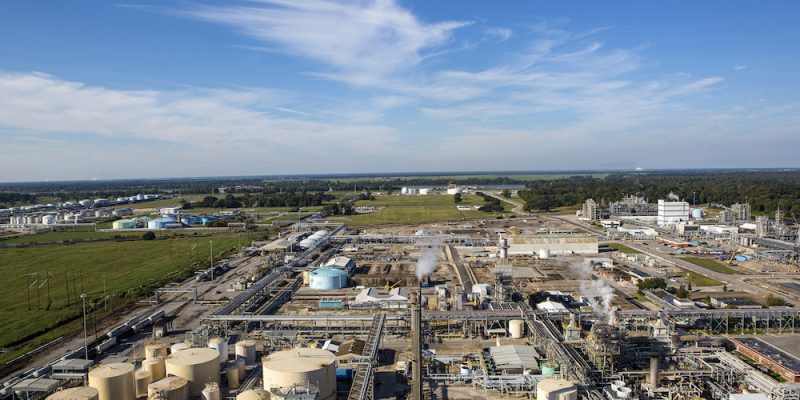What can a woke Environmental Protection Agency do? Louisiana is a canary in the coal mine on that account.
Last November, agency Administrator Michael Regan undertook a self-styled “Journey to Justice” tour of several locations in and around Louisiana in proximity to industrial sites, focusing on communities typically poorer and nonwhite. The name echoes the “environmental racism” concept adopted by the political left that maintains this injustice occurs when pollution policy differentially detrimentally impacts, including unintentionally, communities disproportionately composed of racial minorities. That notion neatly adheres to the prevailing neo-racist ethos on the left that American institutions of all kinds are systemically racist and that to provide evidence otherwise is itself an act of racism.
Regan’s trip, among other actions, signaled a return to politicization of the EPA towards much more heavy-handed and politically-driven administration. This departs from the agency under Republican former Pres. Donald Trump, where it instituted deregulation of needless government oversight that, if anything, improved outcomes, as witnessed by its building on the long-term decline in air pollution. Unfortunately, the EPA under Democrat Pres. Joe Biden already has started to reverse these gains, one of which Louisiana GOP Sen. John Kennedy and others protested this week that for no good reason would harm disproportionately Louisiana industry.
This week, Regan announced policy actions many of which appeared to come to fruition as a result of his jaunt into Louisiana. These include unannounced inspections of chemical plants, refineries and other industrial sites suspected of polluting air and water, and placing air monitoring equipment along Louisiana’s “chemical corridor” to enhance enforcement at chemical and plastics plants between New Orleans and Baton Rouge.
Typically, some warning comes before inspections, but the costs of better enforcement this way probably won’t exceed the benefits. However, taxpayers will have to pony up for mobile air monitoring units that apparently will cruise up and down the banks of the Mississippi that likely won’t reveal harmful emissions any more frequently than required fixed monitors.
But the most intrusive directive also reveals just how politicized the agency is becoming. It will order the Denka Performance Elastometer plant to install fence line monitoring designed to detect chloroprene emissions. For years it has monitored at six nearby sites, as in 2010 the EPA decided more than 0.2 microns per cubic meter emitted could cause cancer. Since March, 2020 (through early December, 2021), the majority of observations continue to fall below that level and these have dropped around 85 percent from when Denka bought the plant and installed scrubbing equipment. (The program began under EPA direction, but Denka has continued it on its own.)
Advertisement
Yet that 0.2 standard has been under scientific scrutiny. A more rigorous study a decade later showed that number to be as much as 130 times lower than the actual harmful level. If so, that would mean only rarely has a dangerous emission occurred since monitoring began. However, the EPA has yet to respond to the reassessment first requested almost a year ago that could raise the figure, even though it has completed peer review of the effort.
Adding weight to that conclusion was a health study from 2020 which showed Denka workers, who have the most unfiltered direct exposure, had below-average rates for all cancer deaths compared with the U.S. and parish averages. Of course, data to date have failed to demonstrate a link between emissions generally and heightened cancer risk, insofar as studies repeatedly have shown the idea of a “Cancer Alley,” or higher cancer rates in the immediate areas of petrochemical plants, is a myth.
More than just ignoring the science, the EPA has started to move in the opposite direction of it, with the agency’s inspector general, despite this evidence, declaring last year it needs to increase efforts to protect allegedly vulnerable communities from chloroprene (Denka in Reserve is the only such manufacturer in the U.S.) and ethylene oxide (also emitted in the area). The relevant report calls for updating regulation in that area, relying on outdated data and not mentioning the most recent studies. Indeed, the report prompted a local special interest and leftist legal interest group to ask for immediate fence line monitoring – just granted by Regan – and wanted the EPA to investigate the Louisiana Department of Environmental Quality for violation of civil rights laws for allowing Denka to operate this way.
Clearly a political agenda is afoot here, and it seems the plan is to infect Louisiana with it first before trying to implement it nationwide. It’s all part of Biden’s war on fossil fuels, with the EPA harassing and hounding petrochemical users to no valid scientific end in an effort to discourage their production. Until wiser heads prevail, Louisianans will have to endure and wait out the ideologues now in charge.
Advertisement
Advertisement

